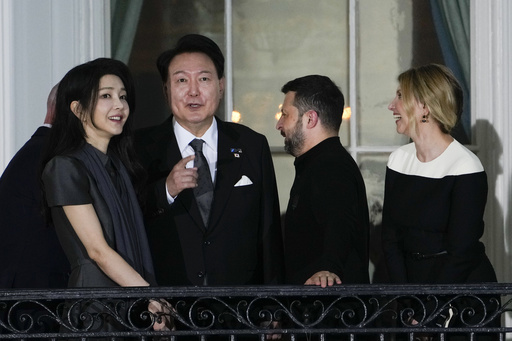Four Indo-Pacific nations joined the NATO summit in Washington, jointly condemning the unlawful military cooperation between Russia and North Korea. The alliance between NATO and its Pacific partners is strengthening to address perceived mutual security threats. Leaders or representatives from Japan, South Korea, New Zealand, and Australia, although not NATO members, participated in discussions covering various collaborative initiatives like Ukraine, cybersecurity, disinformation, and artificial intelligence.
NATO Secretary-General Jens Stoltenberg emphasized the significance of working together to maintain peace and uphold the rules-based international order, especially in the face of challenges such as Russia’s conflict in Ukraine, China’s support for Russia, and the alignment of authoritarian powers. The White House welcomed the involvement of the four nations, recognizing the interconnected nature of threats facing different regions.
Deputy Secretary of State Kurt Campbell expressed the U.S.’ interest in formalizing the partnership among the four Indo-Pacific countries as part of Washington’s regional focus. South Korean President Yoon Suk-yeol highlighted the growing importance of solidarity among like-minded nations in tackling common challenges, including the situation in Ukraine and provocations from North Korea.
Japanese Prime Minister Fumio Kishida pledged to build a lasting collaboration foundation between NATO and its Indo-Pacific partners, including reinforcing intelligence-sharing mechanisms and planning joint exercises in the Euro-Atlantic area. New Zealand signed a partnership program with NATO to enhance cooperation significantly, according to a social media post by Stoltenberg.
Australia announced its largest individual military aid package, valued at nearly $250 million Australian dollars, for Ukraine. The assistance includes advanced air defense capabilities and precision munitions to support Ukraine’s efforts in the conflict. China, labeled by NATO as a facilitator of Russia’s actions, voiced opposition to NATO’s engagement in the Indo-Pacific region, highlighting concerns about regional peace and stability disruptions.
Kenneth Weinstein from the Hudson Institute noted that the collaboration between NATO countries and the four Indo-Pacific nations is driven by Russia’s invasion of Ukraine, North Korea’s alignment with Russia, and China’s provision of dual-use technology to Russia. These partnerships are seen as crucial to strengthening deterrence efforts.
